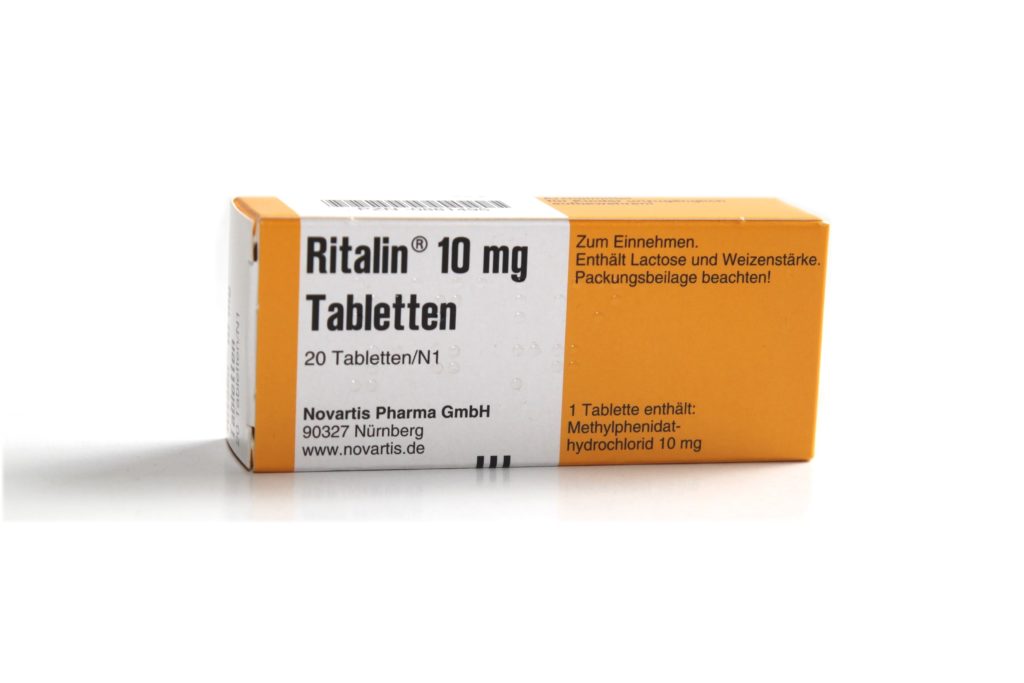The authors of a large scale well-conducted systematic review of methylphenidate, also known as Ritalin, conclude that there is a lack of quality evidence for the drug’s effectiveness. Their research also reveals that Ritalin can cause sleep problems and decreased appetite in children.
 “At the moment, the quality of the available evidence means that we cannot say for sure whether taking methylphenidate will improve the lives of children and adolescents with ADHD,” the authors conclude.
“At the moment, the quality of the available evidence means that we cannot say for sure whether taking methylphenidate will improve the lives of children and adolescents with ADHD,” the authors conclude.
Methylphenidate is the drug most commonly prescribed to treat children diagnosed with ADHD. Despite the widespread use of this drug a systematic review of its harms and benefits has never been carried out until now.
The researchers, led by Dr. OJ Storebø from Denmark, examined 691 randomized control trials that compared methylphenidate to placebo in children and adolescents under 18. They also evaluated all of these studies for “risk of bias” by checking for problematic methodologies, selective reporting, and conflicts of interest. All told, the review included the records of over 12,000 patients.
The analysis of the trials found there was a slight overall improvement in ADHD symptoms for those taking the drug, just meeting the threshold for clinical relevance. However, all of the trials reporting changes in symptoms were found to have a high risk of bias, and the effect of the drug was significantly impacted by the length of the study. For example, in long-term trials the drug was found to have a smaller effect on ADHD symptoms.
When examining the drugs effect on children’s general behavior, the researchers found that the trials showed a mild improvement in teacher evaluations but warned that this data was low quality and at a high risk of bias. Interestingly, this data also revealed that the reported effect on general behavior was not influenced by the dose of the drug administered. Three trials reported an increase in quality of life of children using the drug and while this effect appeared to be clinically relevant, “the estimate relies on only three trials and all three had a high risk of bias, primarily due to lack of blinding of participants, selective outcome reporting, and vested interests.”
The researchers found that methylphenidate was associated with non-serious adverse events in 29% of participants. “The adverse events reported over all trials included neurological, digestive, urinary, circulatory, respiratory, reproductive, skeletal, muscular, and immunological adverse events as well as physical measures such as difference in height, weight, body mass index, and vital signs,” they wrote. Also, all of the parallel trials that reported these non-serious adverse events had a high risk of bias “owing to lack of blinding of participants, lack of outcome assessor blinding, vested interest, selective outcome reporting, and incomplete outcome data.”
The researchers conclude:
“The results suggest that among children and adolescents with a diagnosis of ADHD, methylphenidate may improve teacher-reported symptoms of ADHD, and general behaviour and parent-reported quality of life. However, given the risk of bias in the included studies, and the very low quality of outcomes, the magnitude of the effects is uncertain.”
“Future trials should publish depersonalised individual participant data and report all outcomes, including adverse events. This will enable researchers conducting systematic reviews to assess differences between intervention effects according to sex, age, type of ADHD, presence of co-morbidities and dose. Finally, the findings highlight the urgent need for large randomised trials of non-pharmacological treatments.”
*
Storebø, O. J., Rosendal, S., Skoog, M., Groth, C., Bille, T., Buch Rasmussen, K., … & Gluud, C. (2012). Methylphenidate for attention deficit hyperactivity disorder (ADHD) in children and adolescents. The Cochrane Library. (Full Text)















Thank you, MIA, for reporting this. I feel vindicated each time a report like this is published. There was never any way in a thousand years that I would ever have consented to drugging my young, difficult child. I took the “…non-pharmacological treatment…” route. The report raises so many, many questions on an individual and social level! The bias and placebo issues overshadow everything. And what about long-term issues on brains and bodies for decades to come…?
Liz Sydney
ourviolentchild.wordpress.com
Report comment
The authors of a large scale well-conducted systematic review of methylphenidate, also known as Ritalin, conclude…
If they really want to conclude something they should adjust for body weight and take a dose of the stuff to see how the kids feel on it.
Its just like cocaine ! but better cause you don’t have to re up the stuff every 15 to 20 minutes to keep the high going like with coke.
Wile the Ritalin high is kinda cool the comedown is very similar to the cocaine crash.
They have these kids going from high to crash every day for months and years and then call the results bipolar then pile on more pills.
But ya that methylphenidate high is pretty cool but its like a stupider high than that from Dexedrine or Adderal that makes you feel like you are smarter.
Silly rabbit, drugs are for adult recreation not little children in school !
Report comment
Behaviour is not a disease, a disease to be treated by drugs. There is nothing physically wrong with the children so you can not apply a physical-medicinal solution. Total insanity.
Report comment
Sooo meds prescribed for adhd are not safe and effective like psychiatry and big pharma claim? Just like the anti-depressants, anti-psychotics, and all the other psychiatric drugs? What a surprise.
Psychiatric drugs have never been safe or effective. Big pharma just manipulated the results of every study or outright lied. It’s fraud on a massive scale.
Report comment
Exactly this is massive system wide fraud just like with antipsychotics, antidepressants and antianxiety drugs. What a surprise is right; except it isn’t a surprise; corporations and allied psychiatrist minions have little interest in the real causes of people’s problems or what will help them; they simply want to profit from the sheep whose eyes they’ve pulled the wool over.
Report comment
I echo the appreciation for MIA for spotlighting the Cochrane report. It is studies like this — rare as they are — that gives me hope that psychologists in academia will return to studying non-pharmacological ways to help children and that clinicians in practice will recommend behavioral interventions. Although this report calls for more systematic study of behavioral interventions, there is already ample evidence that they work. Just check out the work and reviews by William (Bill) Pelham, for example.
Report comment
The other day, I spoke with a wonderful young man about this very thing. When he was a wiggly little boy, he was put on Ritalin and had to ride the “little, special bus”, and was stigmatized and teased by the kids who didn’t. As a young adult, he became a drug addict, addicted to meth, a result which he tied directly to early Ritalin use. Now a successful small business owner with two sons of his own, he is faced with his own wiggly little son’s school recommending a “special class”…
Until schools stop being a farm team for the pharmaceutical and psychiatry industries, this epidemic will not end. Preschool children are being denied their right to move around freely – when my son was in preschool, his wise teacher let the boys gallop around and play cowboys until they wore themselves out and wanted to sit quietly to learn in a more academic way. Now, little children are forced to sit on little squares for hours, listening to teachers drone on. Just pathetic.
Report comment